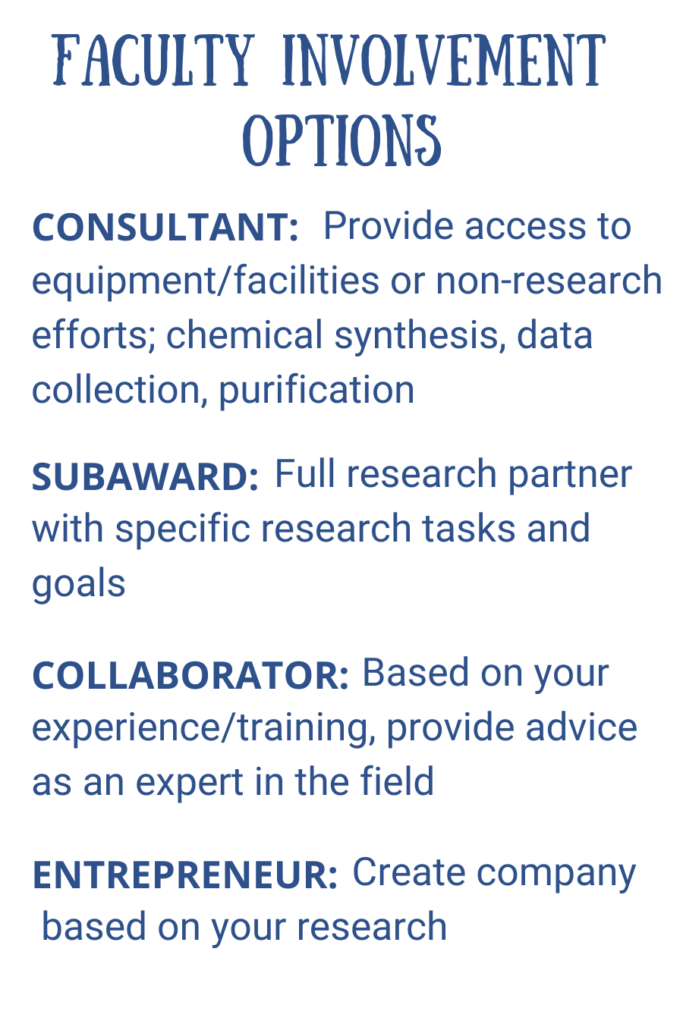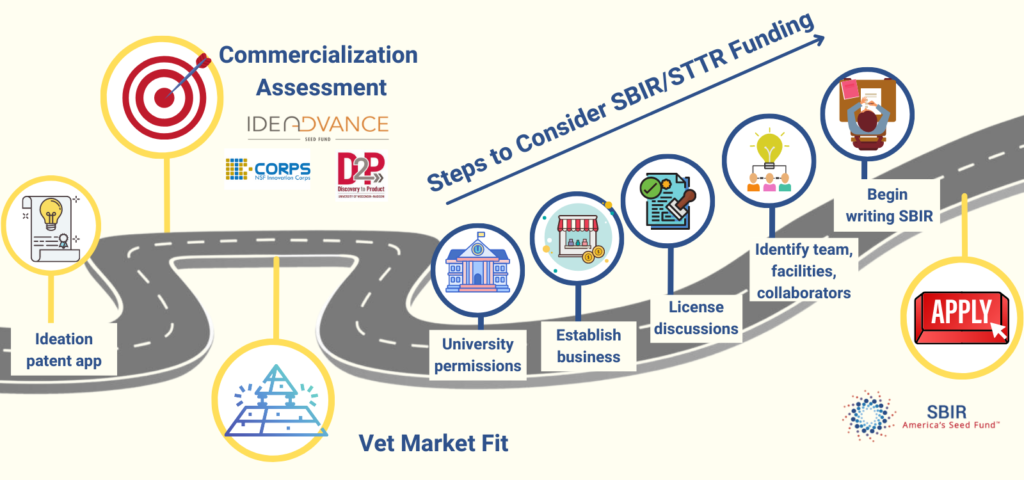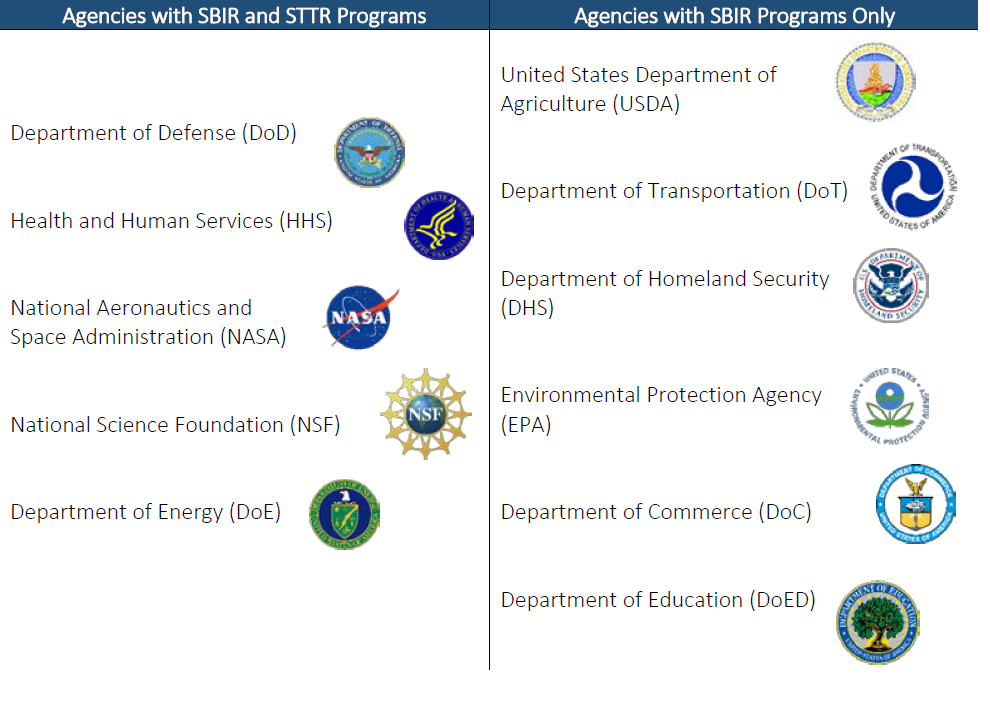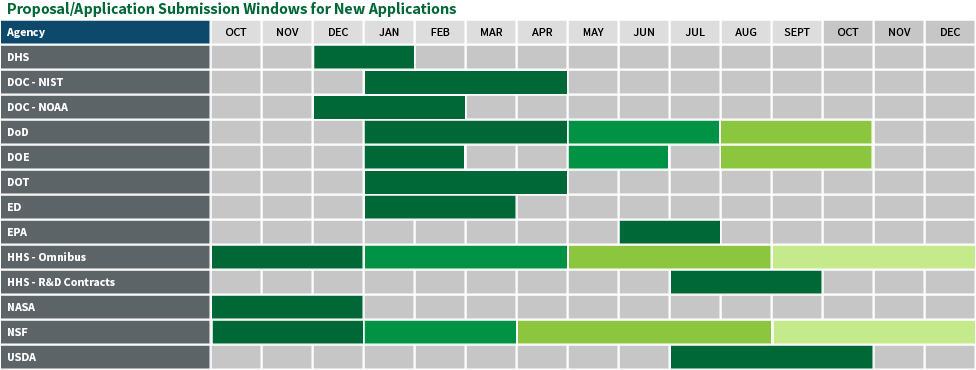What are SBIR and STTR?
The Small Business Innovation Research (SBIR) and Small Business Technology Transfer (STTR) programs are highly competitive programs that encourage domestic small businesses to engage in Federal Research/Research and Development (R/R&D) with the potential for commercialization. Through a competitive awards-based program, SBIR and STTR enable small businesses to explore their technological potential and provide the incentive to profit from its commercialization. These programs are designed to fund and assist early-stage research and development (R&D) performed by small companies.
What’s the Difference Between SBIR and STTR?
Startup companies formed by University faculty can seek this innovation funding, either with or without University involvement. In fact, while only small for-profit companies are eligible to apply, most of these companies work with University people and fund University work for their project. SBA eligibility tutorial.
SBIR
- Small business can work alone or with others
- Small Business has a larger R&D role. Partner may only perform up to 33% of the work in Phase I and up to 50% of the work in Phase II
- Primary investigator (PI) must be an >51% employee of the small business
STTR
- Small business must work with a research institution.
- Partner may only perform between 30 and 60% of the work in each Phase
- Primary investigator (PI) may be an employee of the small business OR the research institution
Involvement in SBIR/STTR Projects

Explore Eligibility for the SBIR/STTR Program
SBIR/STTR Overview Webinar Recording
Prepare Your University Spin Out for SBIR Funding
As a university entrepreneur there are steps to move your startup towards commercialization. CTC is happy to help. Here’s a roadmap to the steps required to successfully apply to the SBIR program. SBA university navigation tutorial.


License Discussions

License Discussions

Team/Facilities
How Do I get Started?
As an added incentive to pursue SBIR/STTR funding, Wisconsin has complementary programs designed to assist in obtaining the funding and the commercialization of technologies as supplements to federal funds provided through grant awards. These programs, like SBIR Advance and Proposal Preparing Micro-grants, can augment funding and offer additional resources and expertise to small businesses hoping to develop and commercialize pioneering technologies. Request a meeting with CTC to see what free support is available to you.
Step by Step Guide to Registrations
Not sure if your business is ready for the SBIR/STTR Program? Look over our pre-SBIR/STTR programs, SBIR Ready, Ideadvance – Wisconsin’s Seed Fund, and SBIR/STTR Assistance Micro-grants.
If you haven’t already, contact CTC.
Signup for CTC’s twice-monthly newsletter to get all the expert advice, funding opportunities, news and events. Check our archive for past issues.

The SBIR/STTR website offers general information about the history and background of the program, lists Open and Closed Solicitations, and provides a searchable database of all award winners by state.
Use this calendar as a guide to aid you in your funding strategy. You may, and should, consider multiple agencies as potential funding sources. Search all open topics across all agencies here.

Local Resources
NSF I-Corps – The National Science Foundation (NSF) created the Innovation Corps (I-Corps) program to help accelerate the transfer of academic research into the marketplace. The Milwaukee I-Corps site supports not just UWM, but other academic institutions in Milwaukee as well – including the Medical College of Wisconsin, Marquette University, the Milwaukee School of Engineering, and Concordia University.
SBDC – Small Business Development Centers provide counseling and training to small businesses including working with the SBA to develop and provide informational tools to support business start-ups and existing business expansion.
Discovery to Product – UW Madison – Discovery to Product (D2P) is your “front door” to get connected to the many available and effective people, programs and resources designed to help bring university ideas to the marketplace. All of D2P’s programs and services are free and open to UW–Madison faculty, staff, students and employees of affiliate organizations.
Law and Entrepreneurship Clinic – UW Madison – The Law & Entrepreneurship (L&E) Clinic provides free legal services to nascent entrepreneurs and early stage companies through the work of law students supervised by faculty and private sector attorneys.
Law and Entrepreneurship Clinic – Marquette University – The LEC serves entrepreneurs creating new businesses in southeastern Wisconsin, with a focus on clients who can’t afford qualified legal counsel. Clients must have a well-developed plan to start, or have recently started, a new business with potential to help the local economy.